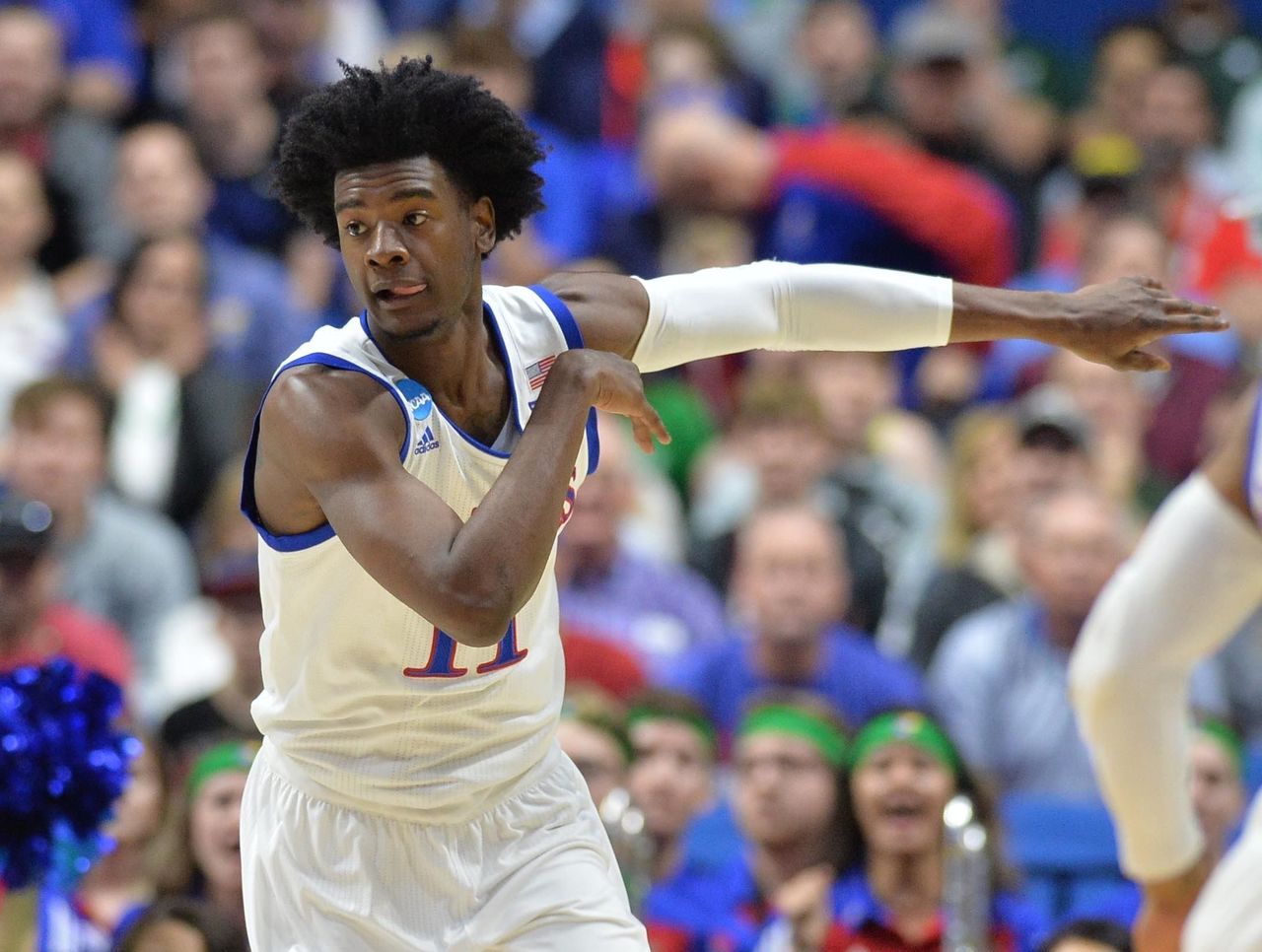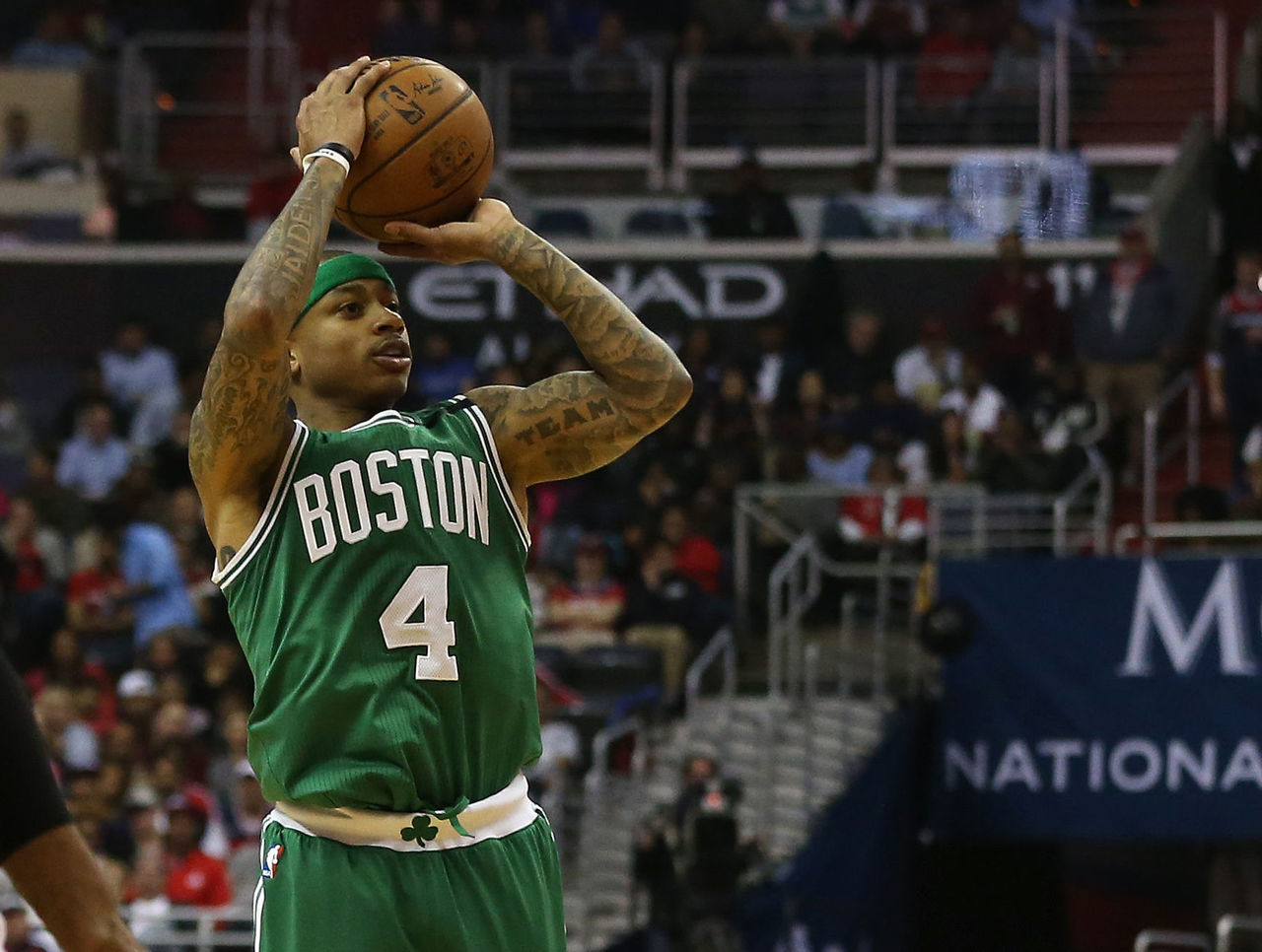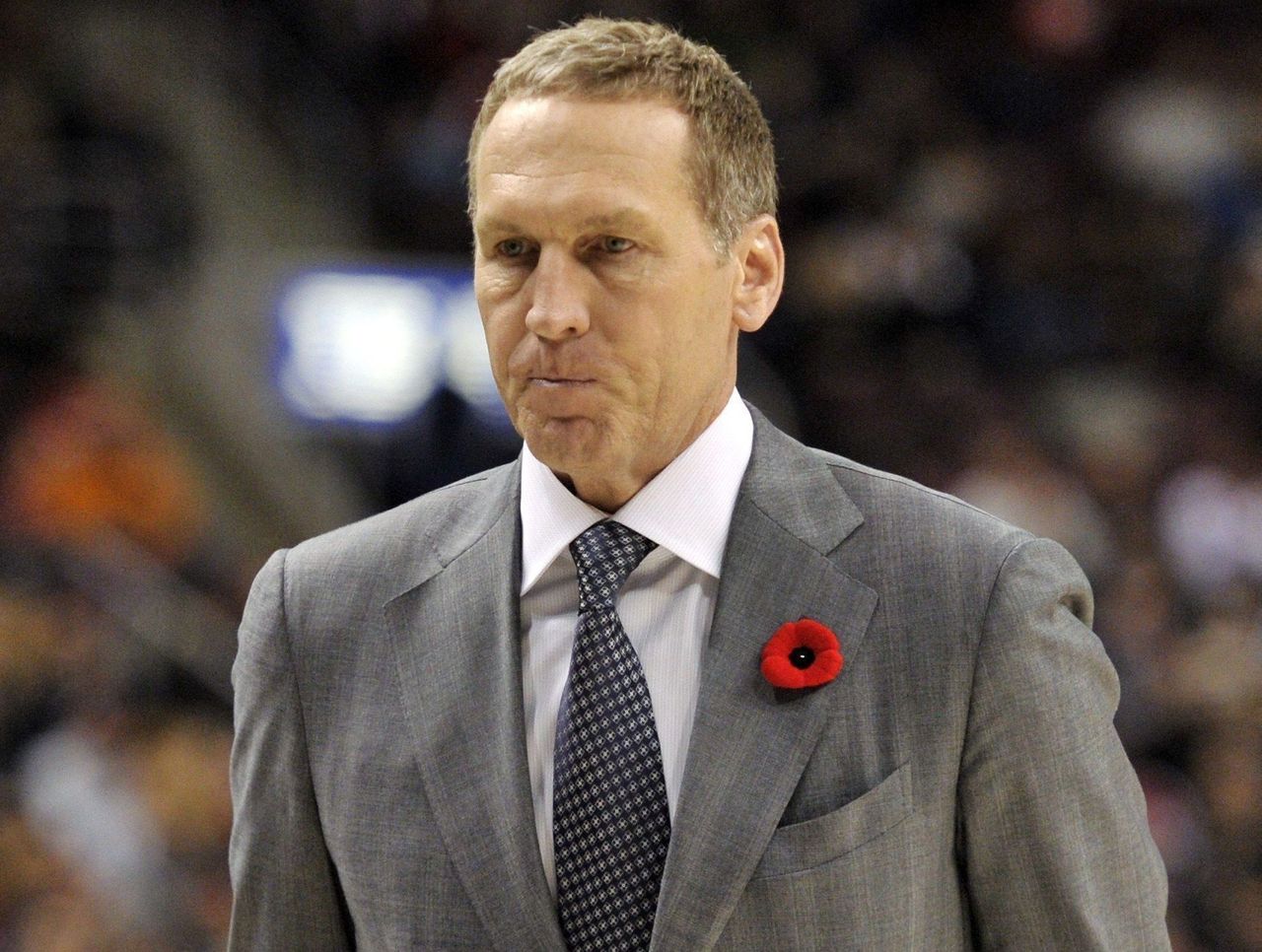Winners and losers from Celtics-Sixers swap of No. 1 pick
The Philadelphia 76ers and Boston Celtics are set to pull off a blockbuster trade ahead of the 2017 NBA Draft, barring any last-second setbacks.
Philadelphia will receive the No. 1 pick from Boston for the price of this year's third selection, along with a future pick in 2018. Consensus top pick Markelle Fultz took his physical and medical with the Sixers this weekend, and a trade call to the league office has already been scheduled for Monday.
Let's evaluate the winners and losers in this deal.
Winner: Fultz gets a real chance
The overwhelming winner in this trade is Fultz, who gets to be a normal No. 1 pick and lead his own franchise.
Fultz needed a situation where he could find touches and minutes. He needed the freedom to make mistakes playing alongside other young prospects. Philadelphia is the perfect situation for Fultz to get his feet wet, quickly gain reps at the pro level, mesh with its precocious core, and to develop independently of any expectation of immediate contention.
That opportunity simply would not have existed in Boston where Isaiah Thomas reigns supreme. Last year's No. 3 pick in Jaylen Brown only played 17 minutes per game and that's inflated by 20 spot starts when his incumbent was injured. Most of that speaks to the Celtics being a competitive club with playoff aspirations - there was no appetite to live and die off a rookie's mistakes.
Fultz would have been stuck coming off the bench in Boston. Now he gets to be the lead guard.
Loser: Whoever the Celtics select

The Celtics will likely select Josh Jackson or Jayson Tatum with the No. 3 pick.
Jackson is a Danny Ainge player through and through. Jackson works his tail off defensively, he plays off the ball, he can guard multiple positions, and he is a team player. He projects to be something like ex-Celtic forward Gerald Wallace.
Tatum is the craftiest scorer in the draft. Get him isolated in the high post, get out of the way, and watch Tatum get buckets. He combines great length, a reliable jumper, crafty footwork, and a tight handle similar to a less athletic Rudy Gay.
Both forwards are great prospects, but thanks to this trade, they will forever exist within the context of Fultz's performance. Not only that, but they will likely struggle to find minutes in Brad Stevens' rotation.
Neither one of Jackson nor Tatum figures to be a starter, especially if Ainge is successful in his chase for another star forward. Wing minutes were already hard to come by with Brown, Jae Crowder, and Avery Bradley splitting time.
If Gordon Hayward signs, or if Jimmy Butler arrives in a trade, the No. 3 pick can expect to see DNP-CDs, while Fultz is the favorite for Rookie of the Year. That's a lot of pressure to handle.
Winner: IT4 keeps his job

Moving away from Fultz gives Thomas all the leverage in the world to chase his long overdue payday.
Thomas couldn't duck trade rumors despite blossoming into an All-NBA talent and leading the Celtics to the No. 1 seed in the East. Thomas' defensive shortcomings (pun intended) is a fatal flaw for any contender, and it wasn't clear if Ainge wanted to lavish a diminutive 29-year-old with a maximum contract when Thomas becomes a free agent next summer.
Boston has now painted themselves into a corner. Transitioning from Thomas to Fultz would have been a step backwards in the short run, but handing the reigns over to an elite prospect would have been understandable. Without that option, the Celtics are essentially locked into keeping Thomas and therefore building around his flaws.
Loser: Free-agent point guards
Philadelphia was going to get its hands on a point guard one way or another. If the draft proved fruitless, it would have turned to free agency.
Money would have been no object for the Sixers, who have enough cap room for two maximum contracts. They were rumored for the likes of Kyle Lowry and Jrue Holiday - two veterans who would have required overpays to join a developing situation.
The Sixers badly need a floor general to orchestrate their floundering offense. The likes of Jahlil Okafor, Dario Saric, and Joel Embiid are capable scorers, but they had nobody on the wing who could generate easy scoring opportunities. The additions of Fultz and Ben Simmons will help tremendously in that regard.
Paying Fultz on a rookie-scale contract is much more palatable than adding an expensive veteran. But that's bad news for free-agent guards hoping to cash in this summer. Signing in Philadelphia would have been a tough sell, but at least it would have served as credible leverage in negotiations with other clubs. The threat of joining Brooklyn or Sacramento is too far-fetched of a bluff.
Winner: Colangelo's Q-rating

Bryan Colangelo came to power under dubious circumstances, so it's understandable the fan base hasn't warmed to him.
His predecessor, Sam Hinkie, became a cult figure for a hardcore segment of Sixers fans that bought heavily into "The Process." Jerry Colangelo's involvement in the deposition of Hinkie and the succession of his son definitely didn't help Bryan's popularity.
This trade is Colangelo's way of making nice with his fans. This is the first instance where Colangelo put his stamp on the team independent of Hinkie. He inherited a jumbled roster with plenty of overlapping assets, and in one fell swoop Colangelo brings clarity to the franchise.
Fultz is their point guard of the future. Simmons and Saric can handle the rock and slash from the wing. Embiid is the centerpiece on both ends of the floor. Colangelo turned the muddled mess of vague assets compiled by Hinkie into a plausible core for the future, and that should earn him the begrudging respect of his fan base.
Loser: Ainge takes a huge risk
Ainge is one of the brightest GMs in the league and his place in Boston is assured. He assembled a championship roster, hired two brilliant coaches, then fleeced the Brooklyn Nets for all their picks to make this promising future possible.
But he is a gambler at heart, and Ainge staked a large portion of his sterling reputation on this trade. Moving on down from the No. 1 pick is a huge risk.
Whoever he picks at No. 3, Ainge must nail the pick. His track record of uninspiring draft selections is already the biggest knock against him. Ditching the consensus top prospects to grab more assets down the line means Ainge absolutely must convert on those selections.
Good luck with that! pic.twitter.com/C8stKHG4Op
— Nick Wolf (@wolfnick10) June 18, 2017
Ainge also painted himself into a corner with this roster. Not only is he locked into Thomas, but he now finds himself with eight first-round picks in the next three drafts, of which he has no room on the roster to accommodate. He is reaching the point of diminishing returns for his assets, wherein he won't be able to return full value.
His salvation will likely come in the form of a trade. Flipping those surplus picks into a star player like Butler or Paul George could make Ainge look like a genius for hoarding so many future assets. But fans in Boston have been waiting on that type of move for two straight seasons, and Ainge has stood pat.
The longer Ainge waits, the more his assets depreciate, and the more restless the Celtics' fan base becomes.
(Photos courtesy: USA Today Sports)